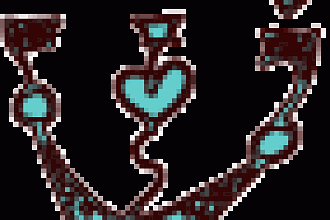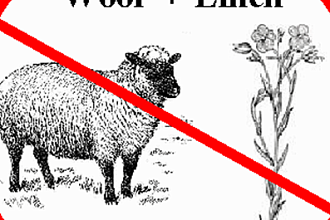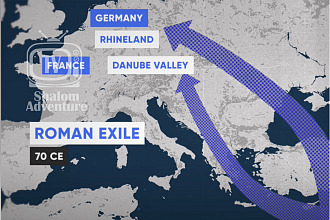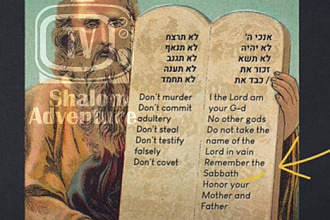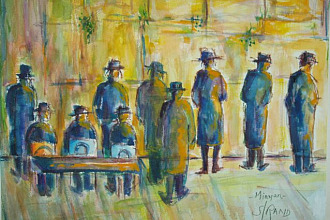A chupah is a large covering that is often used at weddings to cover the bride and groom.
It can be constructed with four vertical poles with a prayer shawl or similar cloth draped over them. This canopy represents God's protection and blessing over the couple.
As the bride enters the hall the rabbi announces, "Baruch habah beshem Adonai, ( ברוך הבה בשם יי ) blessed is the one who comes in the name of the LORD." Traditionally the bride will circle the groom, reminiscent of the text in Jeremiah 31:22 that says, "A woman shall court (go around) a man" and Hosea 2:19, 20; "I will betroth you unto me..." Seven blessings are usually recited, including the kiddish and quotes from Jeremiah 33:11.
During the wedding ceremony, the rabbi will usually read the ketubah, the Jewish marriage covenant that is signed by the bride (kallah), groom (chatan), and witnesses. Toward the end of the ceremony the groom will break a glass with his right foot. Some say this is a reminder that our Temple in Jerusalem is still in ruins. Others say it symbolizes that all other relationships are broken and now the bride is the only woman for him and that just as the broken glass is an irrevocable act so is his commitment to her.
As beautiful as the wedding traditions are it is God that makes a marriage successful. We need God's covering, not just over our wedding but also over our entire marriage. Just as a chupah represents God's protection over us, we should do all we can to protect the feelings of our loved ones. Elohim places His righteousness and His law in our hearts, which will cause our homes to be constantly filled with acts of righteousness and order. As we appreciate how God loves us just as we are, we are able to love our spouses just as they are. We need God's faithfulness and His forgiveness covering our lives to have a happy life. So also we need to allow God to make us faithful and forgiving in order to have a happy home.
Originally from: Jewish Discoveries by Jeff Zaremsky, pages 188-189, which contains a total of 22 fascinating chapters of biblical history and lessons plus 25 rich Jewish tradition sections, and 27 powerful testimonies, with over 40 beautifully rendered professional works of art all on over 300 jam packed pages. You can own this treasure by visiting Jewish Discoveries.










